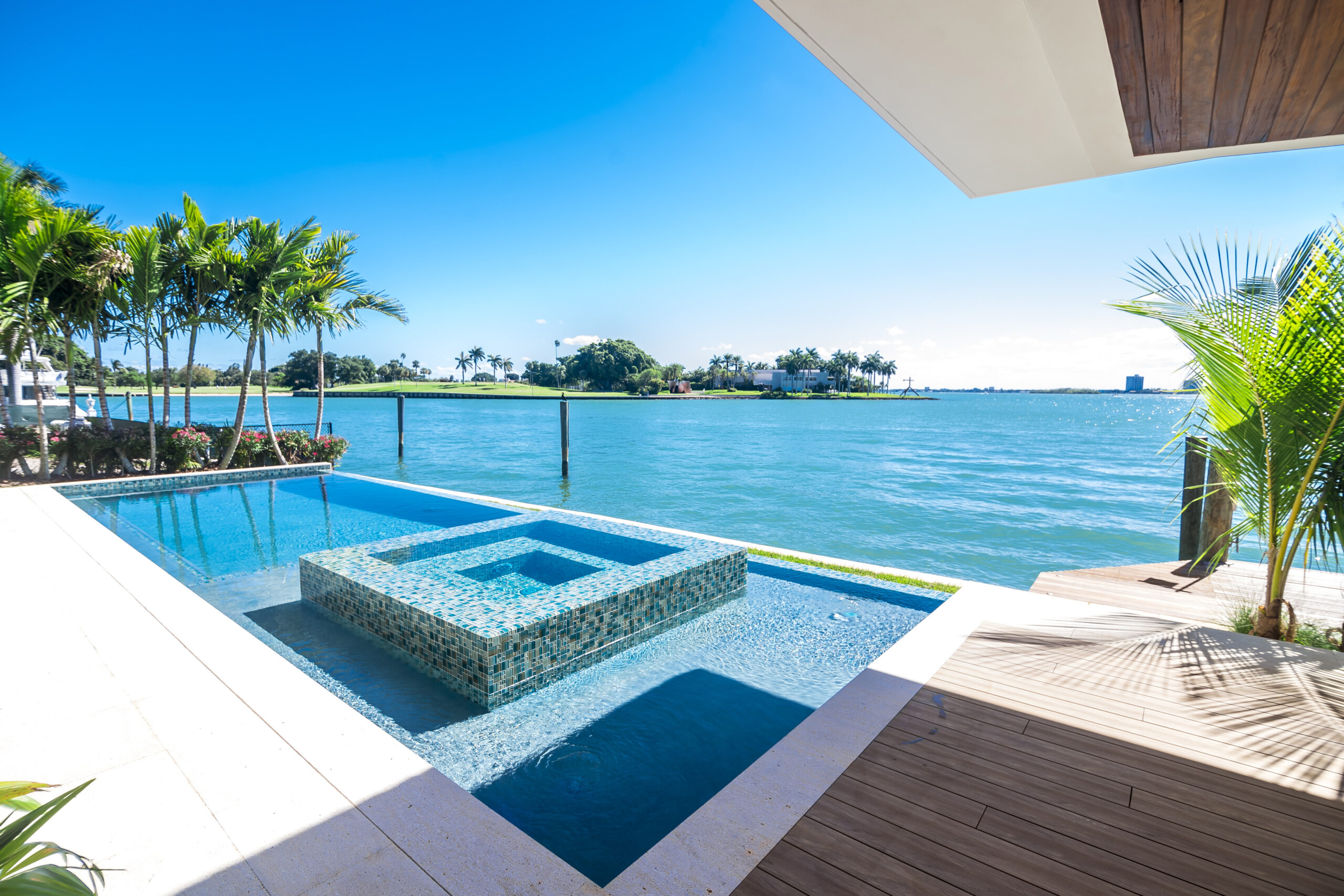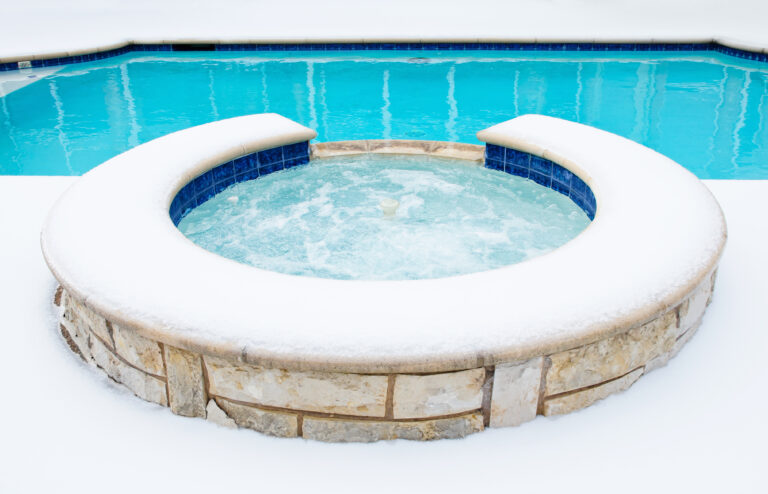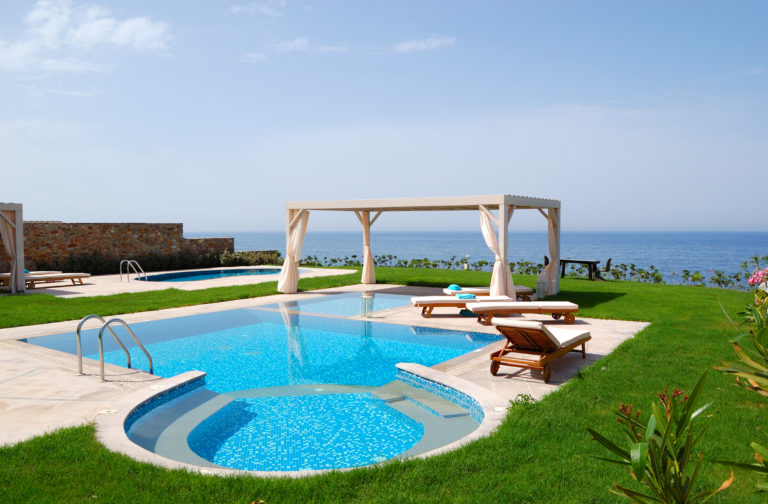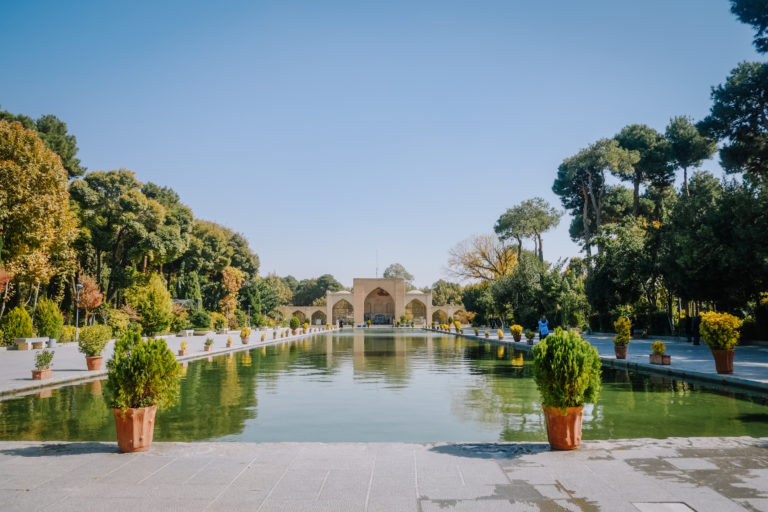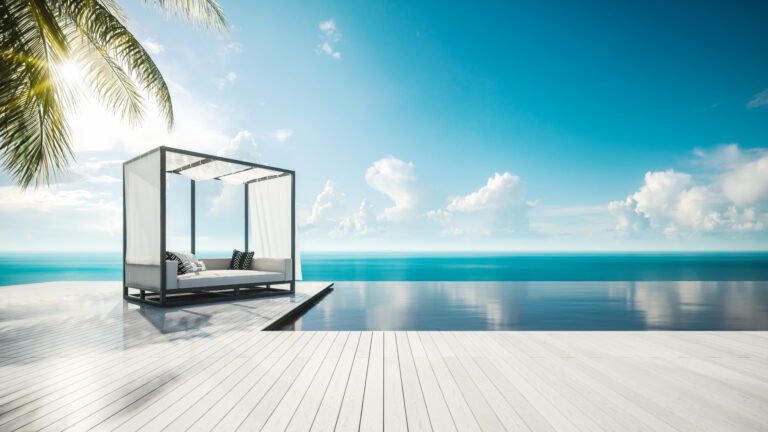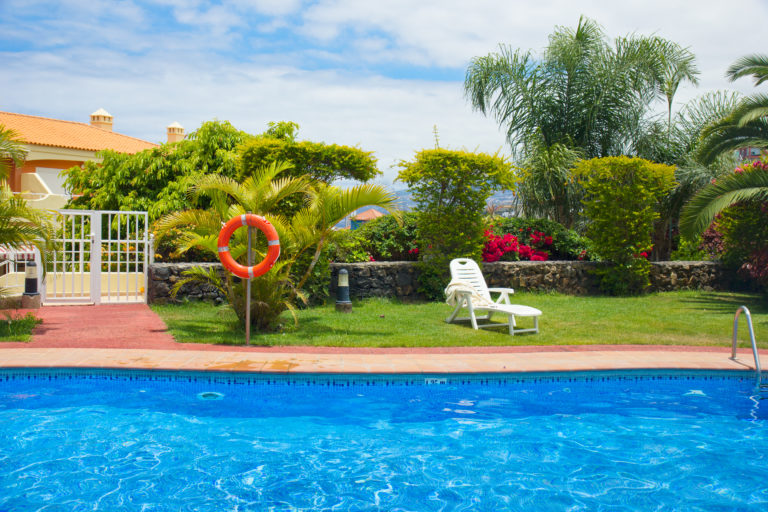Choosing the Right Shape for Your Dream Pool
You’re dreaming of summer days spent by your perfect pool, but you’re stumped on the shape. Rectangular or freeform? Lagoon or figure eight? Don’t fret! This guide will help you understand different pool shapes and how to choose the one that’s right for you.
We’ll discuss influential factors, benefits of popular shapes, and how to customize your selection. Let’s dive into finding the ideal shape for your dream pool!
Understanding Different Pool Shapes
Let’s delve into understanding different pool shapes so you’ll know what’s best for your backyard. You’ve probably seen various pool shapes, from classic rectangles to free-form designs that mimic natural bodies of water. Each shape has its unique appeal and function, but they also come with their pool maintenance implications.
For instance, rectangular pools are easier to clean due to their straight edges and symmetry. However, if you’re looking for more intricate designs like a kidney or figure-eight shape, keep in mind that these might require more effort when it comes to cleaning and maintaining.
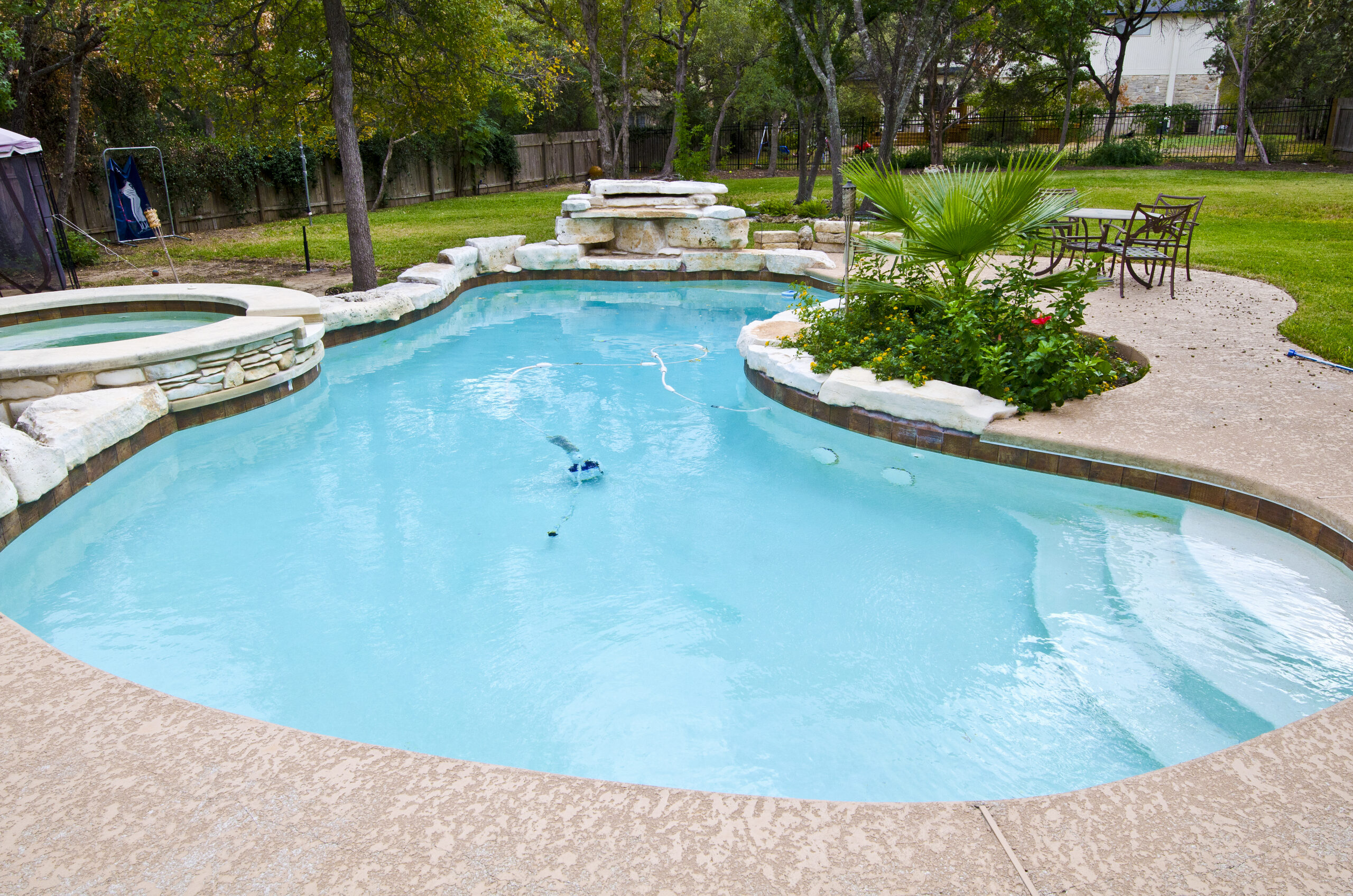
Next is the geometrical aesthetics impact on your backyard ambiance. A geometrically shaped pool offers a sleek look and modern feel. These pools often feature sharp lines and defined angles which complement contemporary architectural styles beautifully. On the other hand, free-form or naturalistic shaped pools blend seamlessly with nature-inspired yards creating a serene oasis.
Factors Influencing Pool Shape Selection
You’ve got to consider several factors before settling on a specific design for your swimming pool. First, let’s talk about shape functionality. This refers to how well the form of your pool suits its purpose. Are you planning to do laps or just lounge around? If it’s the former, a rectangular shape might be best; if it’s the latter, perhaps something more freeform.
Next comes budget considerations. You’re not just shelling out for the initial design and construction; there are also ongoing costs like maintenance and heating to think about. A simple, traditional shape like a rectangle can often mean less cost in these areas due to standardized parts and easier upkeep.
Don’t forget about your yard size and layout either! It’d be a real bummer if you fell in love with an expansive lagoon-style pool only to find out it won’t fit in your space.
Finally, think about aesthetics – how will your new pool look in relation to your home and garden? Remember that sometimes simplicity is key and other times complexity can create a stunning visual impact.
Choosing the right shape for your dream pool isn’t always easy but considering these points should put you on the right track!
Popular Pool Shapes and Their Benefits
Diving into popular pool designs, it’s crucial to understand that each shape offers unique benefits. Your decision should balance shape aesthetics and maintenance requirements. If you’re keen on a classic look, rectangular pools might be your go-to. They offer sleek lines and seamless integration with most architectural styles, not to mention the ease of cleaning.
However, if you’re more inclined towards naturalistic design, freeform pools can mimic the irregular shapes found in nature. They blend beautifully with landscaping but bear in mind they require more effort in upkeep due to their convoluted outlines.
Kidney-shaped pools are another popular choice, combining both style and functionality. Their curved design is pleasing to the eye while offering distinct zones for swimmers of varying proficiency levels.
Lap pools are ideal for fitness enthusiasts; they may not have much aesthetic appeal but their long narrow design caters perfectly for laps or aqua workouts.
Finally, don’t overlook geometric shapes like L-shaped or Grecian-style pools which offer a blend of aesthetics and easy maintenance.
Remember: choosing the right pool shape doesn’t just hinge on your personal taste; it also depends on how willing you are to keep up with its maintenance requirements.
Customizing Your Pool Shape to Fit Your Needs
It’s important to customize the pool design to fit your needs, be it for leisurely swims, family gatherings, or fitness routines. You want a pool that matches not just your lifestyle but also your aesthetic taste. Choosing the right pool material options is essential in achieving this.
You may consider concrete for its versatility and longevity. It allows any shape you fancy and can be finished with plaster, painted, tiled, or covered with pebbles for added appeal. Fiberglass is another option offering smooth finishes and quick installation. For an eco-friendly choice, you might opt for a natural pool, which uses plants to filter water.
Don’t forget about incorporating water features into your design. They add visual interest and can transform the swimming experience. Waterfalls create a peaceful ambiance while fountains provide playful splashes perfect for kids’ enjoyment.
Case Studies: Successful Pool Shape Selections
Let’s take a look at some successful examples of pool design selections, where homeowners made savvy choices based on their specific needs and tastes. They’ve used shape psychology and pool aesthetics to create the perfect backyard oasis.
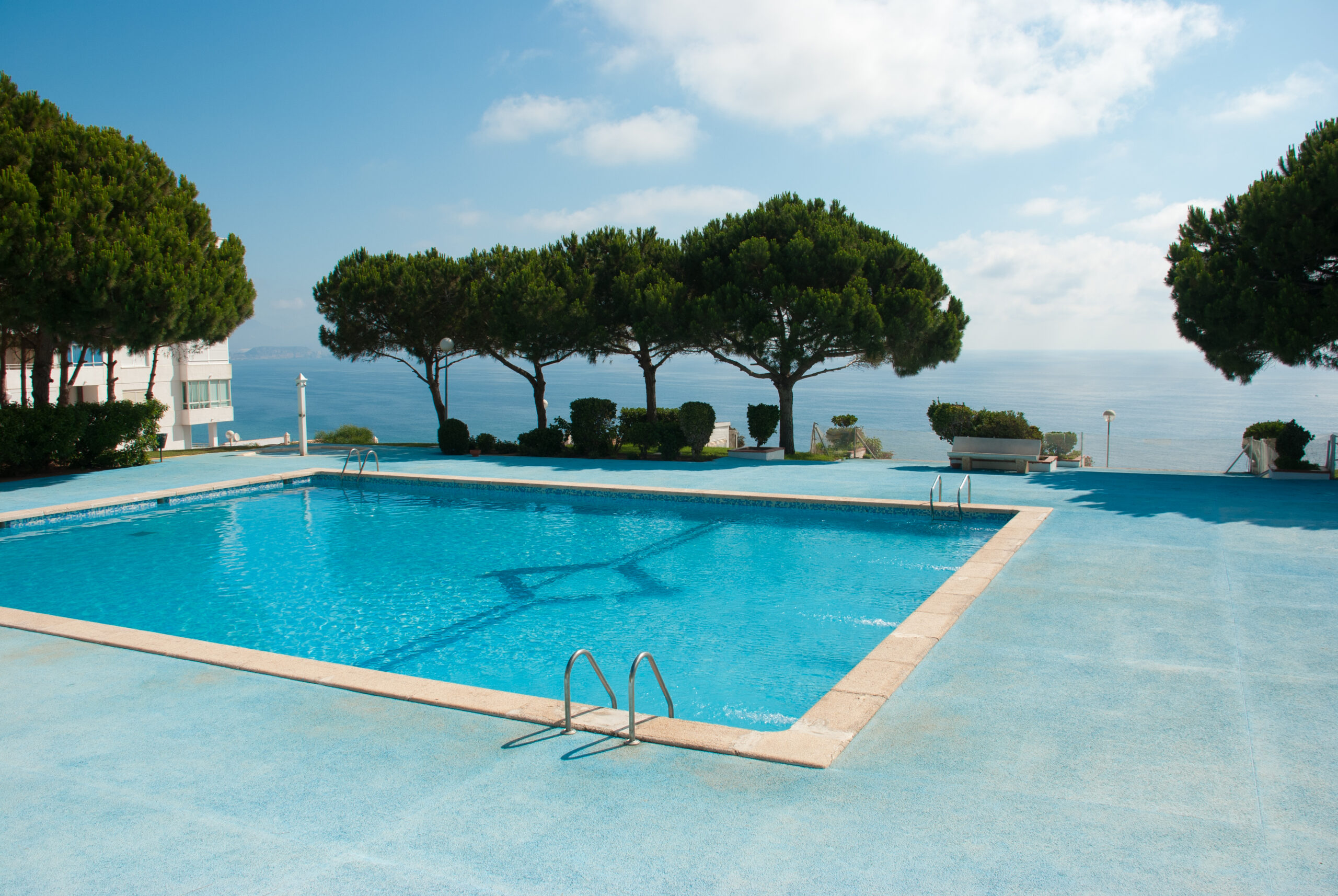
1. The Rectangular Resort: One homeowner with a penchant for modern architecture decided on a rectangular design. The clean lines echoed the rest of their home’s aesthetic, offering an extension of indoor living space outdoors. It’s not just about looks – they took into account shape psychology too. A rectangle can evoke feelings of stability and order, exactly what you’d want for relaxing afternoons by the pool.
2. The Kid-Friendly Lagoon: For families with young children, safety is paramount in pool selection. One couple designed a lagoon-shaped pool with gentle curves and shallow edges for their little ones to play safely while still providing depth in the middle for adults.
3. The Lazy River Roundabout: Another homeowner wanted fitness functionality from their pool but didn’t have room for lap lanes. Instead, they chose a circular design that allowed them to swim against a current created by water jets.
Frequently Asked Questions
What Are the Maintenance Requirements for Different Pool Shapes?”
Different pool shapes have varying maintenance requirements. You’ll find that shape aesthetics influence cleaning ease, while safety features can affect upkeep costs. It’s crucial to consider these factors when selecting your pool’s design.
How Does Pool Shape Affect the Cost of Installation?”
Your pool’s shape can significantly impact the installation cost. Unique shapes may require more work, raising costs. Shape aesthetics and safety considerations also play a part in determining the final price you’ll pay.
Does the Shape of My Pool Have Any Impact on Its Longevity?”
Yes, your pool’s shape can impact its longevity. Complex shapes may require more maintenance. However, focusing on shape aesthetics and energy efficiency during design can enhance both the lifespan and performance of your pool.
Can the Shape of My Pool Influence the Type of Swimming Activities I Can Do?”
Absolutely, the shape of your pool impacts the type of swimming activities you can do. Consider shapes for lap swimming or fun water games. Always remember, shape aesthetics and pool safety are crucial too.
Are There Certain Pool Shapes That Are Better Suited for Smaller Backyards?”
Yes, certain pool shapes are better for smaller yards. Opting for a rectangular design maximizes space, enhances shape aesthetics, and allows easier implementation of safety measures. It’s all about smart use of limited area.

